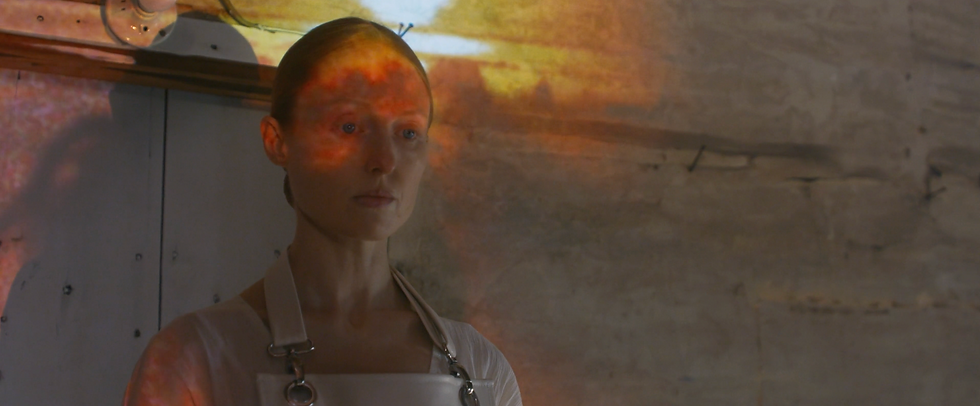- Valentina aka Papaya_Horror
- Oct 13, 2025
- 2 min read
Blood Shine
Where Salvation turns Sadistic, and Worship becomes a Dream of Faith.

Films about cults often hide behind a fraudulent mask of salvation, only to reveal the malignant designs of a sadistic, manipulative, and narcissistic leader.
“Blood Shine” (2025), directed by the duo Emily Bennet and Justin Brooks, doesn’t stray far from this familiar landscape, yet it threads in an unexpected thematic undercurrent.

One particularly tethered to toxic masculinity, especially within the film industry, where dominance over female characters can blur into harassment and control—without ever losing sight of its main obsession: the cult, and the slow, creeping horror of surrendering to it.
Emily Bennet, as Clara, embodies everything a cult victim both is and isn’t. We are told little of her past, yet her every expression and intonation sketch an outline of the life that shaped her. Fragile in frame and angelic in appearance, Bennet becomes a paradox—the perfect tantaliser cloaked in vulnerability.

The film’s dissection of loneliness is one of its most piercing achievements. Being lonely and being alone are two vastly different concepts, and there’s a conversation in the film that lingers precisely on that distinction—a scene I replayed more than once. (Yes, this was one of my great misses at FrightFest 2025, and Emily was kind enough to provide me with a press screener.)
“Blood Shine” delves meticulously into the cult-recruitment process—the subtle persuasion, the spiritual grooming, the psychological corrosion. It portrays how faith can be weaponised while still leaving traces of the self inside the captive—a dim spark that refuses extinction.

The story follows Clara, a religious zealot who captures a problematic horror filmmaker, Brighton West(David Call), and subjects him to her sadistic ceremonies in an attempt to make him a god.
While the film certainly delivers sequences of severe and corporeal torment, “Blood Shine” does not merely revolve around cruelty.
It thrives on the uneasy exchanges between Clara and Brighton, rooted in her dualistic belief system—one that envisions light and darkness as eternal adversaries.

What begins as a chance encounter spirals into a hallucinatory and mind-bending descent for Brighton, who finds himself ensnared in a cobweb of faith, flesh, and transcendence.
Larry Fessenden—ever the blessed spectre of indie horror—appears as a videotaped cult leader whose presence, projected into the torture room” radiates an unholy aura across the film’s suffocating atmosphere.
Toby Poser, in an unexpected cameo, brings her trademark magnetism, stealing every frame she inhabits as a devoted member of the cult’s inner circle. Her brief role, though fleeting, slices through the narrative with conviction and belief.

“Blood Shine” is a mesmerising work of performance and direction.
A hallucinatory descent that balances torment and transcendence, the sacred and the profane, until all boundaries blur into folk horror.








Comments